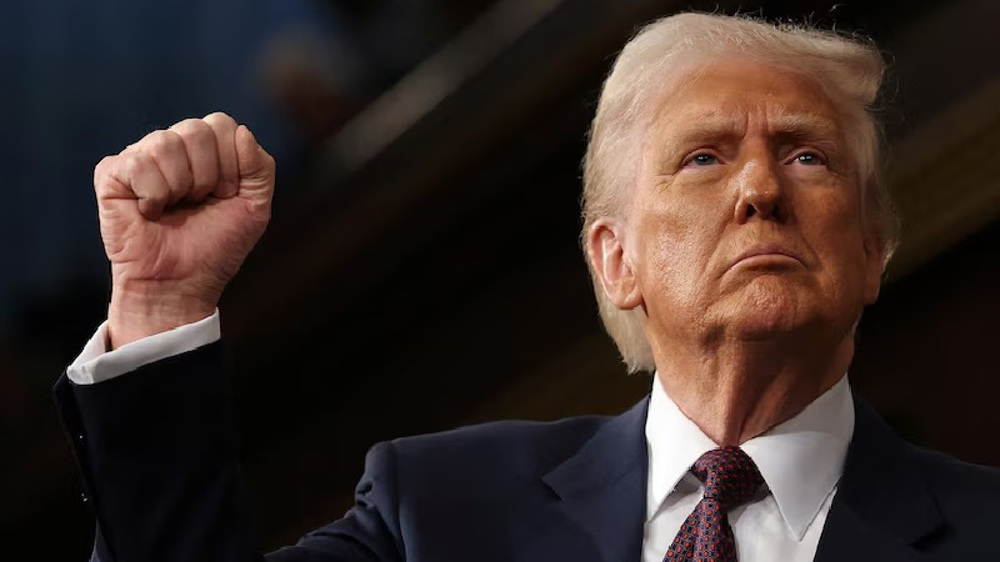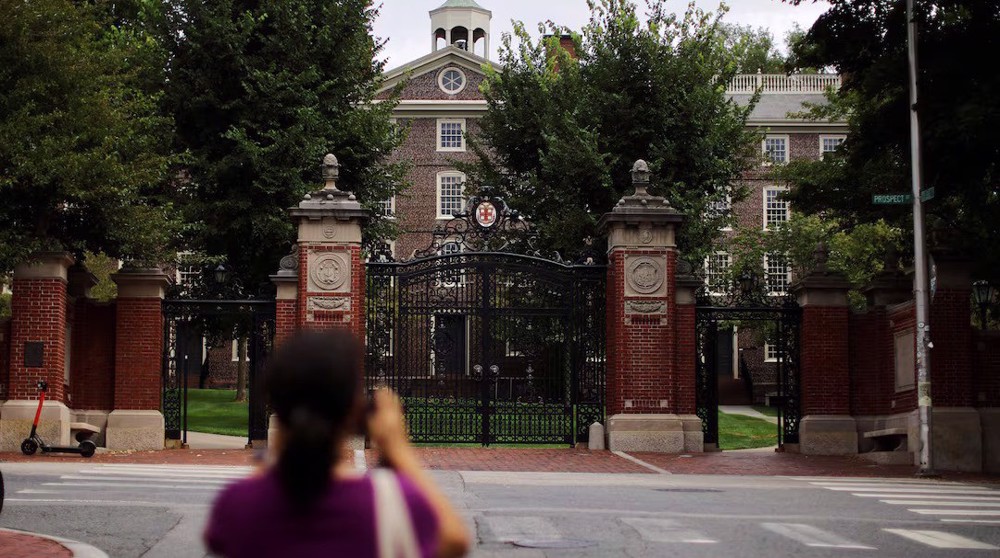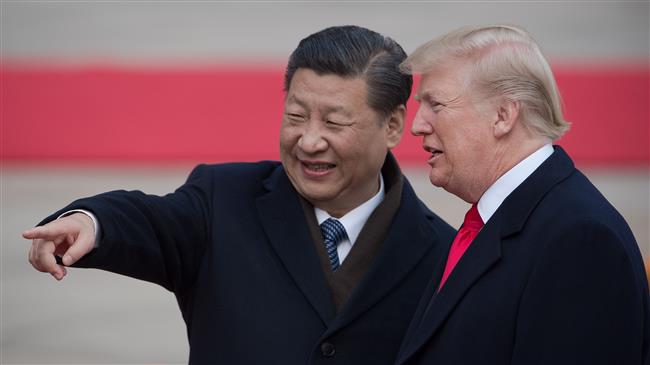US moving closer to new Cold War era with China: Report
The administration of US President Donald Trump is moving deliberately to counter what the White House views as years of unchecked Chinese aggression, signaling a new and potentially much colder era in relations between Washington and Beijing.
The Trump administration is now taking aim at military, political and economic targets in Beijing, The Wall Street Journal reports, citing interviews with senior White House officials and others in government.
“In the first 18 months of the administration, ties between the world’s two biggest powers were defined by negotiations over how to restrain North Korea and ways to rebalance trade. Those high-profile endeavors masked White House preparations for a more hard-nosed stance with Beijing—a strategy now surfacing as China’s help with Pyongyang wanes and trade talks stall,” the newspaper said.
The recent eruption of tensions in what appears a new Cold War aren’t the exception to Trump’s China policy, they are exactly what the administration wants, the White House officials said.
Last week, US Vice President Mike Pence gave a blistering speech on US-China relations, saying “the United States has adopted a new approach to China.”
Pence said that US presidents Bill Clinton, George W Bush and Barack Obama fundamentally misunderstood the China challenge. He said the nation they embraced as a “strategic partner” is in fact a “strategic competitor”, “rival”, indeed “adversary.”
Accusing previous administrations of having ignored or even “abetted” China’s abuses, Pence insisted that the Trump White House will speak up, stand up, fight, and win.
John Bolton, the new national security adviser, has long advocated for a tough approach to China. In an interview with US media on Thursday, Bolton said Trump is the toughest US president China has ever seen.
Bolton said Trump believed China had misused the international order for far too long and not enough Americans had stood up to it.
On Wednesday, the US Treasury Department announced new rules targeting China that tighten national security reviews of foreign investment. On the same day, the Justice Department said it had brought a Chinese intelligence operative arrested in Belgium to the U0S to face charges he conspired to steal trade secrets from GE Aviation and others.
The US Energy Department announced Thursday that Washington will "sharply restrict"exports of nuclear technology to China. Officials in Washington believe Beijing has been "diverting civilian nuclear technology to power the new generations of Chinese submarines, aircraft carriers and floating nuclear power plants."
The administration also signed off recently on Justice Department directives that force a pair of Chinese state media outlets to register as foreign agents.
The speed of the US shift to a more confrontational China strategy has surprised many Chinese officials, analysts said.
“The US is getting tougher and tougher, confronting China on all fronts,” said Zhu Feng, an expert on China-US relations and international security at Nanjing University. “Beijing should be very coolheaded because does a new Cold War serve China’s interests? No.”
The US moves represent an emphatic shift from a “constructive engagement” strategy that dates to the establishment of diplomatic ties in 1979. It was based on hopes that it would lead China to develop a free market economy, democracy and acceptance of the so-called US-led world order.
Underpinning the change is the view that China has reversed course since Chinese President Xi Jinping took over in 2012 and began recentralizing political and economic controls, pledging to build his nation into a great world power.
The more aggressive US approach was forecast last December in the White House’s National Security Strategy that put China on par with Iran, Russia and North Korea as the biggest threats to the US. At the time, the strategy contrasted with Trump’s personal diplomacy.
“When I came we were heading in a certain direction that was going to allow China to be bigger than us in a very short period of time. That’s not going to happen any more,” Trump said in August.
The dramatic shift comes amid an intensifying trade war between the two countries, which Trump launched in the Summer to help reduce the massive US trade deficit with China.
The Trump administration has imposed tariffs on $250 billion worth of Chinese goods and has threatened to place tariffs on all Chinese imports to the US. China has retaliated by imposing duties on $110 billion worth of US exports.

Global trade war on the horizon

Trump admin. to freeze Brown grants, impose Harvard restrictions over pro-Palestinian protests

China hits back with 34% tariffs on US imports as fears of global recession rise
Israel’s brutality in Gaza ‘surpasses all recent forms of terrorism’: Rights group
VIDEO | Press TV's News Headlines
Myanmar quake death toll passes 3,300: State media
US spent $1 billion on Yemen offensive with limited results: Report
Microsoft employees disrupt 50th anniversary event over AI-assisted Gaza genocide
Global trade war on the horizon
Israeli forces kill second Doctors Without Borders worker in two weeks
VIDEO | Protesters rallying against Italy's new security bill clash with police








 This makes it easy to access the Press TV website
This makes it easy to access the Press TV website